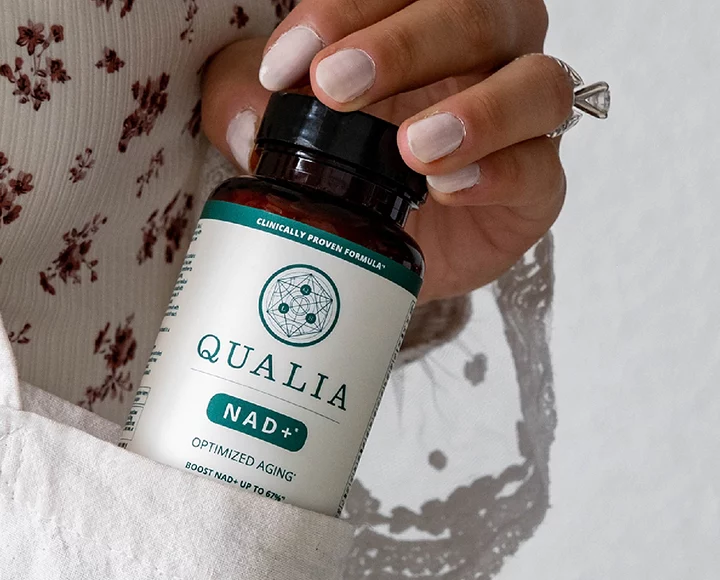The common refrain these days is that “work-life balance” is a myth. There is no secret to creating perfect equilibrium. That said, navigating the nuances of the multi-faceted modern-day work schedule — and all the emotional health issues that come with it — has never been a bigger topic of discussion.
What is ‘the new normal’ when it comes to our lives at work? For many of us, the answers are still unfolding. With many businesses still searching for perfect solutions, we’ve been talking to founders and managers we trust about how they’re managing it all.
Our chat with sustainable brand founder and fashion designer, Janessa Leoné, was especially insightful. Is the team at Janessa Leoné ahead of the curve on these issues? We think so. Do these schedules and policies look like what’s emerging for your team as well? Or far from it? Here’s everything we learned from Leoné…
Name: Janessa Leoné, owner and designer of Janessa Leoné
Team size: 15+ | Business age: 8 years
what are 3 things you’ve learned about managing a team from the start to now?
+ Be slow to hire and take the long-term view vs hiring for immediate needs.
+ Take the time to invest in employees and develop their long-term professional goals, life goals, and personal growth goals.
+ Don’t be afraid to be vulnerable and ask for help from your team.
What was your biggest learning during the pandemic?
Working remotely proved to be a really valuable exercise for the way we run our business. It offered us all the opportunity to re-invent our workflows.
Our team walked away with more personal agency, more accountability to each other and our projects, and more intentionality with our individual work flows. Like most things, I think the way one person works is highly individualized and when you are in an office, the office culture can create a homogeneous work environment and disallow each individual to find their best practices to cultivate success for each member.
As a team, we were very intentional about employing the “deep work” philosophy. We achieved higher quality output in half the time. We were able to use the forced circumstances to rethink and challenge the status quo of our workday. We successfully used the home office to focus on deeper, distraction-free, focused work so we could end the day with a high level of accomplishment in less time, allowing us to focus more time on activities that enriched our lives. This proved to be highly beneficial for the creativity and benefit of the company as a whole, but in a time with such world-wide distress, we successfully managed to create personal routines that also prioritized our holistic wellbeing.
What does yOur post-pandemic work week look like?
We’ve adopted a hybrid schedule. We work 2 days in the office together where we have in-person, collaborative meetings. We start the week together with an all-hands meeting reviewing key milestones, projects, and create objectives for the weeks and months ahead. We work three days from home where we utilize deep work to focus on our individual responsibilities that funnel up to the company goals. On Fridays we have a “no meeting” policy and it is a day where each employee is encouraged to set themselves up for success for the next week. This usually means wrapping up outstanding projects for the week, setting personal goals for the following week, and checking out of work early afternoon for a long restful weekend.
The Janessa Leoné shop in L.A. | A hat by Janessa Leoné
Many argue that productivity (not to mention creativity) and team health go hand in hand. What’s your take on this?
Absolutely. From the genesis of the business, I decided that when I managed a team, their health and well-being would be at the forefront. I have had many personal health and mental health struggles over the years myself. I’ve learned quite intimately that you cannot show up to any aspect of your life if your body and mind aren’t healthy—and you cannot do it alone.
I believe teams are ecosystems, and in order to work effectively towards a goal, the collective unit needs to be healthy. A healthy foundation of individual organisms allows the collective unit to work synergistically. As in the natural world, when an individual organism needs support, the ecosystem as a whole is healthy enough to pour resources into that individual, allowing the larger unit to continue to benefit from this synergy.
What insights would you share to biz managers who may be hesitant to incorporate some of these more flexible ideas?
I would encourage business owners to think about the compounding interest you receive from being able to retain talent for multiple years.By creating a workspace that aims to be a value add to our employees’ lives, we’ve nurtured a highly-fulfilled team and are extremely fortunate to have very little turnover in our business.
The investments we have made in our team’s wellbeing have allowed us to create a highly-skilled team, fluent in the business operations as they have grown their careers alongside the business. The collective knowledge we have on our team from sheer exposure to our business history is invaluable. We are able to operate at a high level with a lean team who are experts in our business operations.
What has been the biggest learning so far from your new, ‘post-pandemic’ approach to teams?
To operate a team that is self-directed, it’s imperative to have imbued a culture of autonomy and critical thinking. I think it’s important to accept that not everyone thrives in an environment that is self-managed and requires personal agency. It’s critical to understand the dynamics of culture on a team and hire people who will be personally fulfilled by the environment you provide.
Wellness and mindfulness practices you engage in at the office?
At the start of every team meeting, we provide space for each employee to share “What has their attention.” This is a place where we can enter into our colleagues’ personal experiences, understanding that the edge between work and personal is intrinsically intertwined.
We run our business with empathy and respect at the forefront, encouraging each employee to prioritize their own needs. Each employee has objectives and goals that filter into our larger company goals, so we are less concerned about hours working as we are about quality of work.
We understand that it’s impossible to work at a high-level without extreme care and intention, so we lean in to focused work with a high emphasis on rest and recovery. We have an unlimited time-off policy and have flexible work schedules, so each employee can work in a way that truly fits them best that day. Whether that’s a morning off to go hiking or an early afternoon for a walk on the beach, we give our team full autonomy to take care of their spirit, knowing that when they are filled up, their output is of high value.
Were these updated practices easy to incorporate or a hard sell?
We have attracted a team that is self-directed and has a personal committed to a growth mindset. By having clarity on our long-term goals, we are able to attract a team that our values align with.
What are your Top 3 recommendations for books on team and culture?
+ Let My People Go Surfing by Yvon Chounard
+ Deep Work by Cal Newport
+ Leaders Eat Last by Simon Sinek












